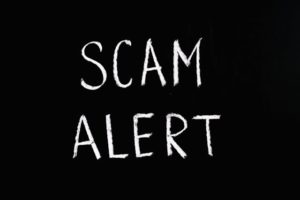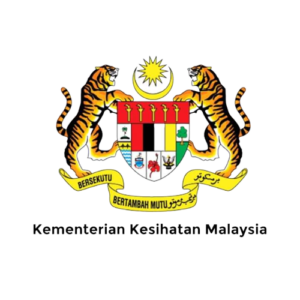 The Internet is one of the most preferred sources of health-related information due to its convenience in accessing a wide range of topics. In addition, the widespread use of social media platforms such as Facebook, TikTok, and WhatsApp, led to the easy dissemination of information, which can be shared among friends, family, and peers facing similar health problems.
The Internet is one of the most preferred sources of health-related information due to its convenience in accessing a wide range of topics. In addition, the widespread use of social media platforms such as Facebook, TikTok, and WhatsApp, led to the easy dissemination of information, which can be shared among friends, family, and peers facing similar health problems.
The risk of misinformation on the Internet
Although beneficial, the Internet also risks causing the spread of misinformation. For example, during the COVID-19 pandemic, the World Health Organisation declared the overload of information circulated online as an infodemic. The dissemination of misinformation regarding vaccination and treatment poses a substantial risk to public health, as it can sway the public to refuse vaccination and opt for an unproven treatment that can potentially cause more harm.
Similarly, misinformation is a potential threat to patients with chronic illnesses. For instance, inaccurate information regarding cancer treatment has led patients to decline conventional hospital treatment in favour of unproven alternative treatment.
Misinformation and promotion of alternative products for cancer treatment
 Research to examine the prevalence of misinformation regarding breast cancer treatment on one of the social media platforms revealed, after analysing over 6,000 postings, that 84% of postings in Malay Language contained misinformation on breast cancer. Furthermore, the incorrect information was also found in 28% of the English Language entries. In addition, postings associated with product promotion were seven times higher in Malay Language compared to English Language postings. This is alarming, as the same research also found that postings posted by product sellers were four times more likely to contain misinformation.
Research to examine the prevalence of misinformation regarding breast cancer treatment on one of the social media platforms revealed, after analysing over 6,000 postings, that 84% of postings in Malay Language contained misinformation on breast cancer. Furthermore, the incorrect information was also found in 28% of the English Language entries. In addition, postings associated with product promotion were seven times higher in Malay Language compared to English Language postings. This is alarming, as the same research also found that postings posted by product sellers were four times more likely to contain misinformation.
Advertising for alternative cancer treatment products is another prevalent way of disseminating false information. This alternative product is extensively advertised on social media and effortlessly captures people’s attention. As examples, social media nowadays is littered with promotions of various “cancer-curing” agents such as Sabah snake grass, cannabidiol oil, keladi tikus, and the so-called “vitamin B17” (also known as apricot seed supplement, amygdalin, or laetrile).
There are studies that show that patients who opted for alternative cancer therapies instead of treatment prescribed by a doctor are associated with up to a five-fold increase in the risk of death. Unfortunately, many people are still unaware of this worrisome situation. Alternative products are also often advertised as safe natural products, but they are not completely devoid of adverse effects. For example, apricot seed contains hydrogen cyanide, which can cause cyanide poisoning at high doses. The risk is even higher if it is taken orally as opposed to when administered intravenously. Cyanide poisoning can cause severe health problems such as liver damage, nerve damage, coma, and death.
Quality of scientific studies for alternative cancer treatments
In order to enhance public confidence in the products they sell, sellers of alternative cancer treatments frequently promote their products using data derived from specific studies. However, oftentimes the research presented data of preclinical studies that involved the use of animals and cell lines in laboratory settings. Positive results in studies using animals and cell lines do not guarantee efficacy in humans.
For a treatment to be recognised as effective, it must undergo rigorous clinical studies, involving a largenumber of people, and adhering to strict research protocol to ensure preciseness of the research findings. The use of animals and cell-lines to test efficacy is considered weak evidence, and it must be further validated in clinical studies before it can be considered as an effective treatment.
Guidance for patients and the general public
The negative effects of misinformation on individuals with cancer imply that they ought to take extra caution while seeking out information regarding the illness and its treatment. Patients and the general public are encouraged to seek information from credible sources, as such sources provide higher-quality and more dependable information. Among these resources are health and medication information provided by healthcare professionals, including doctors and pharmacists, who directly participate in patient care.
Furthermore, patients and the general public can contact the National Pharmacy Call Centre (NPCC) for inquiries about medications, especially those related to cancer treatment. NPCC can be contacted via the toll-free number 1-800-88-6722 between 8 a.m. and 5 p.m.; Monday through Friday (excluding public holidays). Websites and agency portals administered by the Ministry of Health (MOH) also provide the public with accurate and useful information. The Know Your Medicine website, the Info Sihat website, and the MyHealth portal are just a few of the websites and portals that can be accessed.
Additionally, the general public and cancer patients should always exercise caution and not easily accept information about alternative products. Thoroughly examine and scrutinise the content of the information. Beware of overhyped captions that sound overly positive and contain clickbait. The content should also be verified to ensure that it comes from trustworthy sources that do not have ulterior motives to exploit by selling items or promoting health services.
When encountering any advertisement containing a health claim, check its approval number to ensure it has been approved by the Medicines Advertisement Board. An example of an approval number is KKLIU 3993 / exp: 31.12.2025.
Stay wise, avoid the guise
Spreading false information regarding the treatment of chronic diseases such as cancer is an irresponsible deed. Similarly, this is also true for the advertisement of products that are promoted as effective treatments for cancer. In fact, according to the Medicines (Advertisement and Sale) Act 1956, it is prohibited to promote any product as a cancer treatment. If found guilty, the offender can be fined, jailed, or both.
Individuals who received questionable information about cancer treatments should verify the accuracy of the contents. Avoid placing a trust in advertisements made by sellers of alternative products without getting additional information from trustworthy individuals, such as healthcare providers.
Know your medicines, for any inquiries regarding medicines, please call the National Pharmacy Call Centre (NPCC) at the toll-free number 1-800-88-6722 during weekdays from 8 a.m. to 5 p.m.; except on public holidays.

This article is written by Irene Izzati Yussof a pharmacist at Ministry of Health for Bahagian Amalan dan Perkembangan Farmasi (BAPF), KKM x The Malaysian Medical Gazette Series. It is hoped that this collaboration will help prpogate information regarding medication to the general public.
References:
- Yussof I, Ab Muin NF, Mohd M, Hatah E, Mohd Tahir NA, Mohamed Shah N. Breast cancer prevention and treatment misinformation on Twitter: An analysis of two languages. Digit Health. Jan-Dec 2023;9:20552076231205742.
- Johnson SB, Park HS, Gross CP, Yu JB. Use of Alternative Medicine for Cancer and Its Impact on Survival. J Natl Cancer Inst. 01 01 2018;110(1):121-124.
- National Cancer Institute. Laetrile/Amygdalin (PDQ(R)): Health Professional Version. PDQ Cancer Information Summaries. Bethesda (MD); 2002. Available at: https://www.cancer.gov/about-cancer/treatment/cam/hp/laetrile-pdq [Accessed 15 January 2024]
